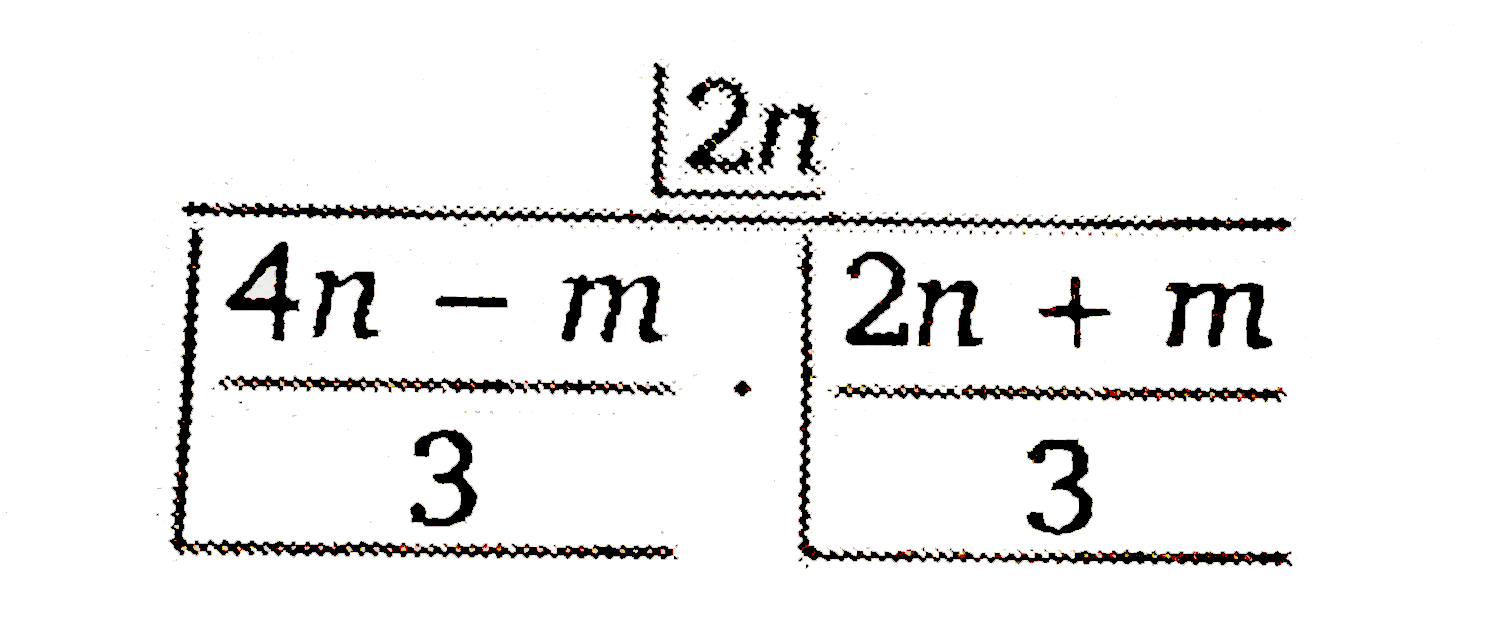Let m be the smallest positive integer such that the coefficient of x2 in the expansion of (1+x)2+(1+x)3+(1+x)4+........+(1+x)49+(1+mx)50 is (3n+1).51C3 for some positive integer n. Then the value of n is
To solve the problem, we need to find the smallest positive integer m such that the coefficient of x2 in the expansion of
(1+x)2+(1+x)3+(1+x)4+…+(1+x)49+(1+mx)50
is equal to (3n+1)⋅(513) for some positive integer n.
Step 1: Find the coefficient of x2 in each term
The coefficient of x2 in (1+x)k is given by (k2).
Thus, we need to calculate the sum of coefficients from k=2 to k=49 and add the contribution from (1+mx)50.
Step 2: Calculate the sum of coefficients from (1+x)2 to (1+x)49
The sum of the coefficients from k=2 to k=49 is:
49∑k=2(k2)
Using the formula for the sum of binomial coefficients, we can express this as:
n∑k=2(k2)=(n+13)
For n=49:
49∑k=2(k2)=(503)
Step 3: Calculate the coefficient of x2 in (1+mx)50
The coefficient of x2 in (1+mx)50 is:
(502)m2
Step 4: Combine the results
Now we can combine the coefficients:
Total coefficient of x2=(503)+(502)m2
Step 5: Set up the equation
We need this total to equal (3n+1)⋅(513):
(503)+(502)m2=(3n+1)⋅(513)
Step 6: Calculate (503) and (513)
Calculating these values:
(503)=50⋅49⋅483⋅2⋅1=19600
(513)=51⋅50⋅493⋅2⋅1=23426
Step 7: Substitute and simplify
Substituting these into the equation:
19600+(502)m2=(3n+1)⋅23426
Calculating (502):
(502)=50⋅492=1225
Thus, we have:
19600+1225m2=(3n+1)⋅23426
Step 8: Solve for m
Rearranging gives:
1225m2=(3n+1)⋅23426−19600
Calculating (3n+1)⋅23426−19600:
Let k=3n+1:
1225m2=k⋅23426−19600
Step 9: Find the smallest m
To find m, we need k such that k⋅23426−19600 is divisible by 1225.
Step 10: Determine n
After testing various values for k, we can find the smallest m that satisfies the condition. For each valid m, we can find n using:
n=k−13
Final Result
After testing values, we find that the smallest m is 7, leading to:
n=7−13=2
Thus, the value of n is:
2
Topper's Solved these Questions
- BOOK - CENGAGE ENGLISHCHAPTER - BINOMIAL THEOREMEXERCISE - Multiple Correct Answer4videos
BINOMIAL THEOREM
- BOOK - CENGAGE ENGLISHCHAPTER - BINOMIAL THEOREMEXERCISE - Comprehension11videos
BINOMIAL THEOREM
- BOOK - CENGAGE ENGLISHCHAPTER - BINOMIAL THEOREMEXERCISE - Numerical25videos
BINOMIAL THEOREM
- BOOK - CENGAGE ENGLISHCHAPTER - AREAEXERCISE - Comprehension Type2videos
AREA
- BOOK - CENGAGE ENGLISHCHAPTER - CIRCLE EXERCISE - MATRIX MATCH TYPE7videos
CIRCLE
Similar Questions
Knowledge Check
- Question 1 - Select One
The coefficients fo xn in the expansion of (1+x)2n and (1+x)2n−1 are in the ratio
A1:2B1:3C3:1D2:1
If n is a positive integer, find the coefficient of x−1 in the expansion of (1+x)n(1+1x)n.
View SolutionIf 'n' is a positive integer then prove that the coefficient foxm in the expansion of (x2+1x)2n is :
 View Solution
View SolutionIf 'n' is a positive integer then prove that the coefficient foxm in the expansion of (x2+1x)2n is :
 View Solution
View SolutionThe sum of the coefficients in the expansion of (1−x+x2−x3)n ,is
View SolutionThe smallest natural number n, such that the coefficient of x in the expansion of (x2+1x3)n is .nC23, is
View SolutionFind the sum of the coefficients in the expansion of (1+2x+3x2+nxn)2.
View SolutionIf |x|<1 , then the coefficient of xn in expansion of (1+x+x2+x3+…….)2 is
View Solution

